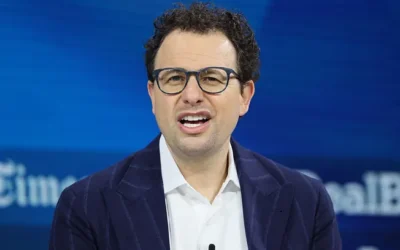As the tariffs imposed by President Donald Trump have had short-term positive and negative effects on the economy, uncertainty among CFOs regarding their long-term impact started to take shape in the first quarter.
According to the latest quarterly CFO survey from Duke University and the Federal Reserve Banks of Richmond and Atlanta, nearly a third of respondents are concerned about tariffs. However, much like the sentiment expressed among CFOs at recent quarterly roundtables, finance leaders are seemingly adopting a wait-and-see approach when it comes to taking action.
Though researchers identify a stark rise in concern quarter-over-quarter, the responses from CFOs in the survey’s “special question on the international trade environment” section showed that CFOs are mostly staying consistent in their hiring plans, capital expenditure spending and general business reactions to tariffs.
Tariff response
Tariffs were identified as the most pressing concern in the survey this time around and had the largest share of total mentions, rising the most quarter-over-quarter among any concern during Q1. Though 49% of CFOs said they’ve made adjustments to their inputs and supply sourcing in their U.S. operations due to tariffs, how they’ve done so varies. Over a quarter (27%) of CFOs say they plan to diversify supply chains, and a fifth (20%) are attempting to time the market by moving up purchase dates.
From a revenue and sales perspective, most firms seem to be fast followers. However, 70% chose no response listed by surveyors, indicating there is likely not enough information on the legitimacy and extent of tariffs, regardless of industry, to make strategic business decisions in response.
Though some leaders in public accounting have said tariffs are a call to action, surveyors indicate that CFOs are much less likely to be in an action-taking mindset. Notably, companies like Mercedes-Benz and Microsoft have announced plans to nearshore some of their production facilities to the U.S. as of late, but financial leaders across industries and the political spectrum have disagreed with President Trump’s tariff approach, including JPMorgan’s CEO Jamie Dimon.
Net spending, hiring and capital expenditures
Most CFOs said they have no plans to change any hiring initiatives despite a drop in the economic sentiment score (66 to 62 quarter-over-quarter). Immigration and tax policy did not significantly impact hiring initiatives. Only trade policy and tariffs had a noticeable impact, with a quarter (25%) of CFOs saying they’ve decreased their hiring plans as a result.
A similar impact was seen in capital spending changes because of shifts in government policy. Immigration and corporate tax policy had little effect on these decisions, but tariff and trade policy caused a quarter (25%) of CFOs to limit spending. Surveyors did not quantify the overlap between those who’ve decreased hiring and those who’ve decreased capital spending.
Aggregate economy and stock market performance forecasts
Though signals on the economy have been both positive and negative in CFO survey data this year, researchers found expectations around real GDP growth dropped slightly among CFOs in the first quarter (2.2 to 1.9 quarter-over-quarter). Surveyors also noted that expectations around negative year-ahead economic growth have risen. Fourteen percent of CFOs said they see a probability of negative growth, a metric that is up 67% quarter-over-quarter (8.5% in Q4 2024 to 14.2% in 2025).
In the U.S. stock market, which is set to undergo unprecedented changes in both trading cadence and competition, CFOs expect a slight dip in growth over the next year, followed by growth approaching the 10-year and 20-year average rate of return of slightly less than 10%. In the worst-case scenario, CFOs predict the S&P 500 could drop 3.5% over the next year.





